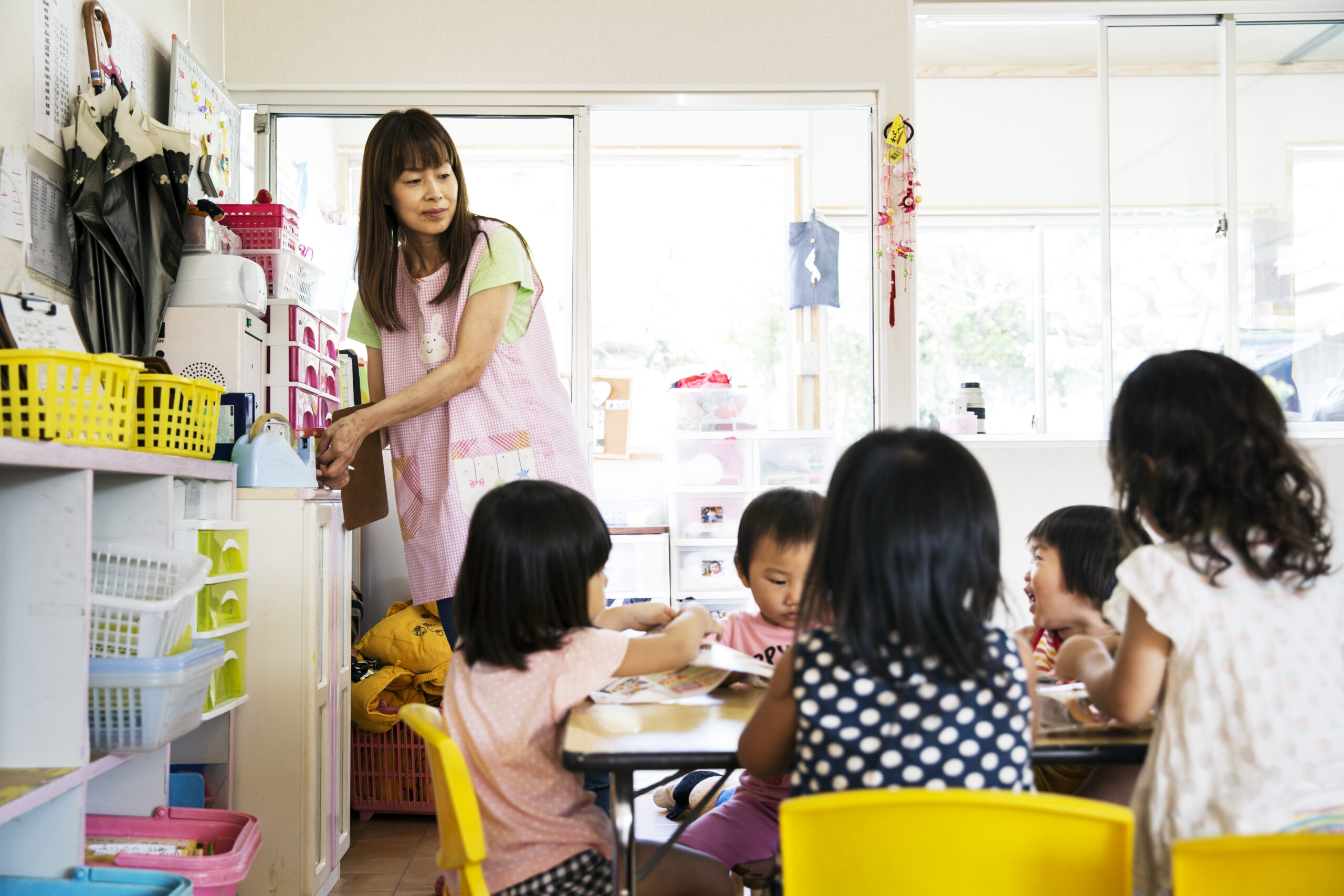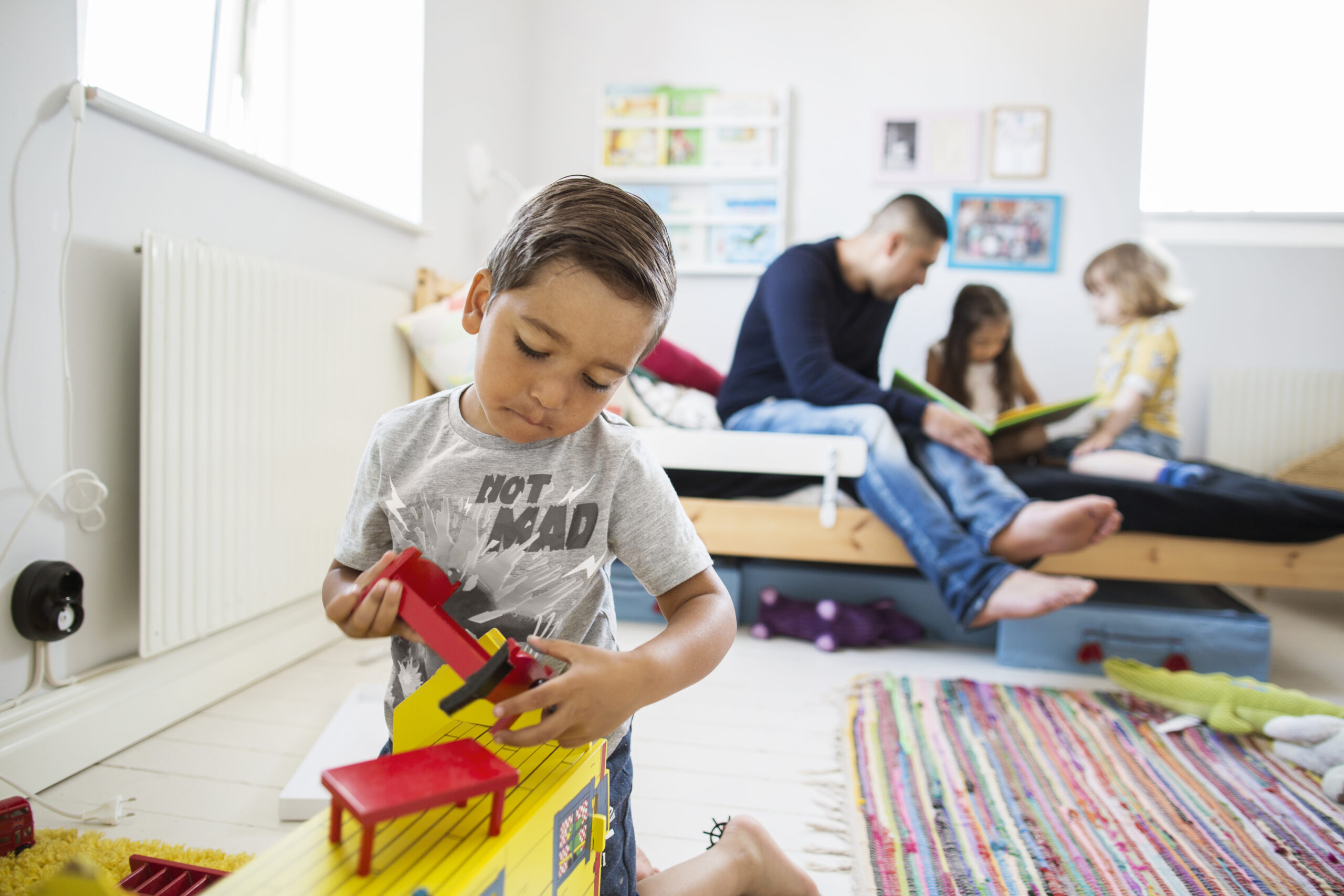Many parents wonder, “When do kids really start learning math?” The truth is, it begins much earlier than you might think. Even before they enter kindergarten, children are naturally developing crucial early math skills. Preschool isn’t just about ABCs; it’s a vibrant environment where foundational math concepts flourish through everyday play and engaging activities.
At Open Doors Preschool, we understand that nurturing these early abilities is vital. It sets the stage for future academic success and critical thinking.
What Exactly Are “Early Math Skills”?
When we talk about early math, we’re not just referring to rote counting. It’s a much broader and more profound set of abilities. Early math skills encompass a child’s foundational understanding of numbers, shapes, patterns, and measurement. They also include crucial cognitive processes like spatial reasoning and logical thinking.
These skills are the building blocks for more complex mathematical understanding later on. They involve recognizing quantities, understanding relationships between objects, and solving simple problems. Developing these skills early fosters a positive attitude towards math.
The Power of Play in Math Development
For preschoolers, play is their work. It’s how they explore the world, experiment with ideas, and make sense of new information. This is especially true for math development. Through play, children naturally encounter mathematical concepts without even realizing it.
Think about building with blocks; children are learning about balance, symmetry, and spatial relationships. Sorting toys by color or size introduces classification and patterning. Even simple games like hide-and-seek involve spatial awareness and counting.
Numbers Are More Than Just Counting
Developing “number sense” is a cornerstone of early math. It’s about understanding what numbers represent, not just reciting them in order.
- One-to-One Correspondence: This is the understanding that each object counted corresponds to one number. When a child touches each apple as they say “one, two, three,” they are practicing this vital skill.
- Cardinality: This concept teaches that the last number said when counting a set of objects represents the total quantity of that set. If a child counts three blocks and knows “three” is how many there are, they’ve grasped cardinality.
- Subitizing: This is the ability to instantly recognize the quantity of a small group of objects without counting them individually. Seeing two dots on a die and knowing it’s “two” instantly is an example of subitizing.
At Open Doors Preschool, we integrate these concepts into daily routines. Counting snacks, children, or steps reinforces number sense in a meaningful way.

Exploring Shapes and Spatial Reasoning
Geometry isn’t just for high school! Preschoolers are natural geometers. They explore shapes in their environment constantly.
- Identifying Shapes: Learning to recognize and name basic shapes like circles, squares, and triangles is an important first step.
- Understanding Attributes: Beyond naming, children learn about the properties of shapes—a square has four equal sides, a circle is round.
- Spatial Reasoning: This involves understanding where objects are in space and how they relate to each other. Building with blocks, solving puzzles, and navigating a play space all contribute to developing spatial reasoning. “Under,” “over,” “next to,” and “behind” are all spatial concepts children learn through play.
Our classrooms are filled with opportunities for spatial exploration. Puzzles, shape sorters, and construction toys are always available.
Discovering Patterns and Logical Thinking
Patterns are everywhere, from the stripes on a shirt to the days of the week. Recognizing and creating patterns is a fundamental math skill. It helps children predict what comes next and develops logical thinking.
- Simple Patterns: Children begin by recognizing simple repeating patterns, like ABAB (red, blue, red, blue) or ABCABC (clap, stomp, jump, clap, stomp, jump).
- Creating Patterns: Once they can identify patterns, children are encouraged to create their own using blocks, beads, or even movements.
Understanding patterns builds a strong foundation for algebraic thinking later on. It teaches children to look for rules and relationships.
Early Measurement Concepts
While preschoolers aren’t using rulers yet, they are developing an intuitive understanding of measurement.
- Comparing Quantities: “Which one is bigger?” “Who has more?” These are common questions that introduce concepts of size and quantity.
- Non-Standard Measurement: Children might use their hands to measure a table or count how many steps it takes to get from one side of the room to the other. This helps them grasp the idea of measurement before formal units are introduced.
- Volume and Weight: Pouring water in the sand table helps them understand capacity. Lifting different objects introduces the concept of weight.
These hands-on experiences lay the groundwork for understanding standard units of measurement later in their education.
Problem-Solving and Critical Thinking
At its core, math is about problem-solving. Encouraging preschoolers to think through challenges fosters critical thinking skills that extend far beyond numbers.
- Everyday Challenges: “We need two more plates for our friends.” “How can we make this tower stand up?” These simple scenarios encourage children to think mathematically to find solutions.
- Open-Ended Play: When children are given open-ended materials like blocks or art supplies, they naturally encounter problems that require creative solutions, often involving spatial or quantitative reasoning.
- Asking “Why” and “How”: Teachers at Open Doors Preschool encourage children to explain their thinking. “How did you figure that out?” “Why do you think that happened?” This process strengthens their logical reasoning.
These early experiences build resilience and confidence in approaching new challenges.
The Guiding Hand of Expert Educators
While play is central, the role of a skilled preschool teacher is invaluable. Our educators at Open Doors Preschool are trained to identify “teachable moments.” They scaffold learning, introduce new vocabulary, and ask probing questions that deepen a child’s understanding.
They provide the right balance of structured activities and free exploration. They create an environment where children feel safe to experiment, make mistakes, and discover. This intentional approach ensures that every child develops a robust understanding of early math concepts at their own pace.

How Parents Can Support Early Math at Home
The learning doesn’t stop when school is out! Parents play a crucial role in reinforcing early math skills in everyday life.
- Count Everything: Count stairs, toys, fingers, toes, and even pieces of fruit.
- Explore Shapes: Point out shapes in your environment—the square window, the round plate, the triangular roof.
- Talk About Patterns: Notice patterns in clothing, wallpaper, or even the sequence of daily routines.
- Play Board Games: Many simple board games involve counting, matching, and strategic thinking.
- Cook Together: Measuring ingredients introduces concepts of quantity and volume.
- Read Math-Related Books: Many children’s books incorporate counting, shapes, and other math concepts.
- Engage in Problem-Solving: Ask questions like, “How many blocks do we need to make this tower taller?” or “How can we share these cookies equally?”
These simple interactions make math fun and relevant. They show children that math is a part of their world.
A Strong Start for a Bright Future
Developing early math skills in preschool is about more than just numbers. It’s about fostering critical thinking, problem-solving abilities, and a lifelong love of learning. These foundational skills are essential for success in all academic areas, especially in the ever-growing fields of science, technology, engineering, and mathematics (STEM).
At Open Doors Preschool, we are committed to providing a rich, engaging, and developmentally appropriate environment where every child can thrive mathematically. Our programs are designed to tap into children’s natural curiosity and build a solid foundation for their educational journey.
Is your child ready to embark on a journey of discovery and develop essential early math skills? Contact Open Doors Preschool today to learn more about our quality early learning programs and schedule a visit!
Frequently Asked Questions About Early Math in Preschool
Q1: What exactly are “early math skills” for preschoolers?
A1: Early math skills go beyond just counting; they include a child’s foundational understanding of numbers, shapes, patterns, measurement, spatial reasoning, and logical thinking. These are the building blocks for more complex math concepts later on.
Q2: My child can count to 10. Does that mean they have good math skills?
A2: Counting is a great start! However, true early math skills involve understanding what those numbers represent (number sense), not just reciting them. Concepts like one-to-one correspondence (touching one item for each number said) and cardinality (knowing the last number counted represents the total) are also crucial.
Q3: How do preschoolers learn math if they aren’t sitting at desks with worksheets?
A3: Preschoolers learn math best through play and hands-on experiences. Building with blocks, sorting toys, solving puzzles, singing songs, and engaging in daily routines all naturally integrate mathematical concepts like shapes, patterns, and counting.
Q4: Is play-based learning effective for teaching math?
A4: Absolutely! Play is how children explore and make sense of their world. In a play-based environment, children encounter math concepts naturally, making learning engaging, meaningful, and long-lasting. It fosters a positive attitude towards math.
Q5: What is “number sense” and why is it important?
A5: Number sense is a child’s intuitive understanding of numbers and their relationships. It’s crucial because it forms the basis for all future arithmetic and mathematical understanding, allowing children to grasp quantities and connections between numbers.
Q6: How does Open Doors Preschool incorporate math into its curriculum?
A6: At Open Doors Preschool, we embed math into daily activities and structured play. This includes activities like counting during snack time, using manipulatives for pattern recognition, building with blocks for spatial reasoning, and engaging in problem-solving scenarios during free play.
Q7: Can I support my child’s early math development at home?
A7: Yes, definitely! You can count everyday objects, point out shapes and patterns in your environment, involve them in simple cooking tasks (measuring), play board games, and read books that incorporate numbers and counting.
Q8: What is “spatial reasoning” and why is it important for young children?
A8: Spatial reasoning is the ability to understand and mentally manipulate objects in space. It’s vital because it supports problem-solving, navigation, and understanding geometry, and is crucial for subjects like science, technology, engineering, and mathematics (STEM).
Q9: Will learning early math skills help my child in kindergarten and beyond?
A9: Yes, a strong foundation in early math skills is directly linked to greater success in kindergarten and throughout their academic journey. It fosters critical thinking, problem-solving, and a readiness for more complex STEM concepts.
Q10: What makes Open Doors Preschool’s approach to early math unique?
A10: Our approach combines expert educators who identify “teachable moments” with a rich, play-based environment. We focus on fostering genuine understanding and a love for learning, ensuring each child develops robust early math skills at their own pace.

